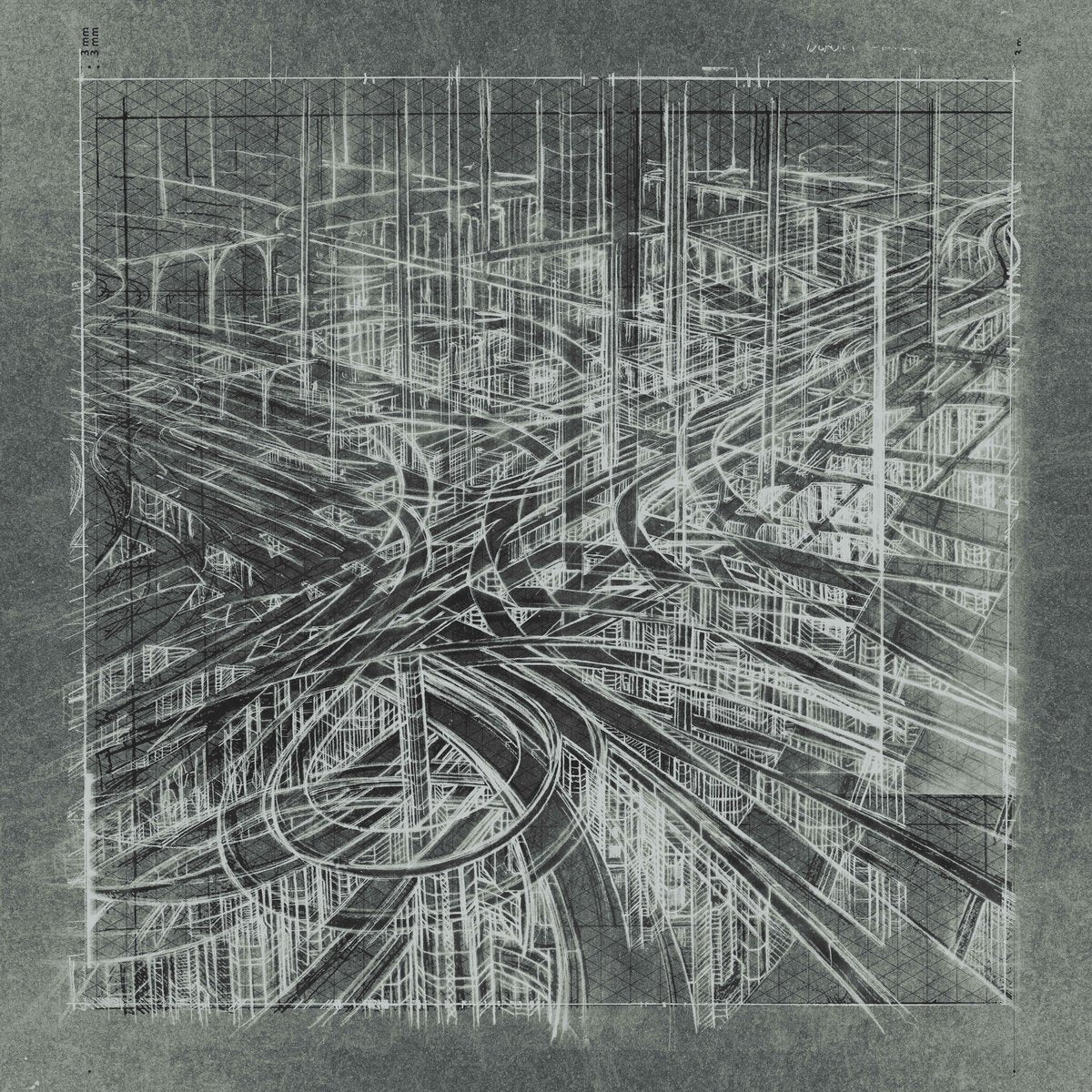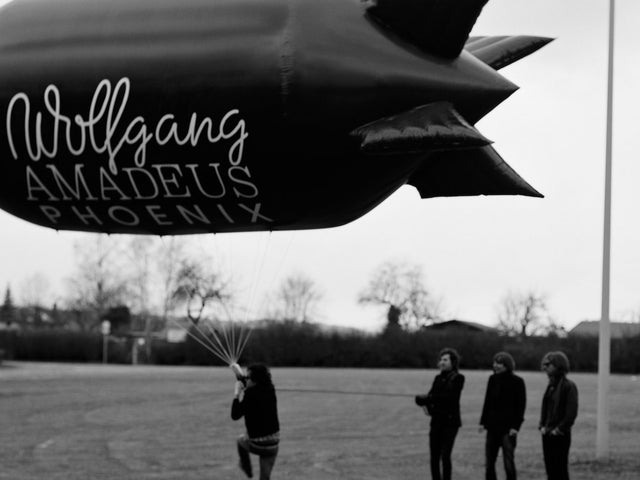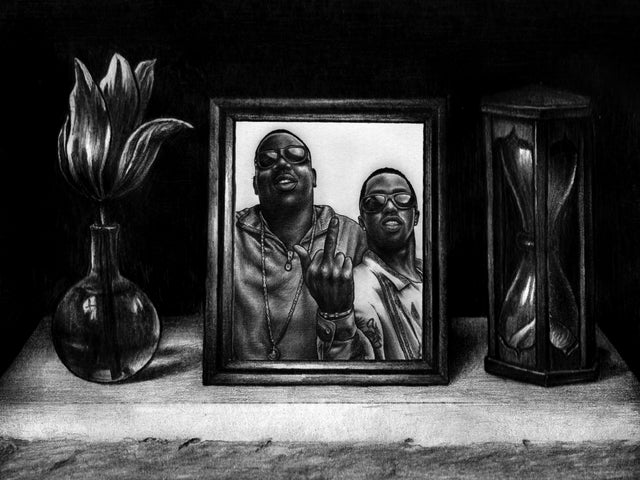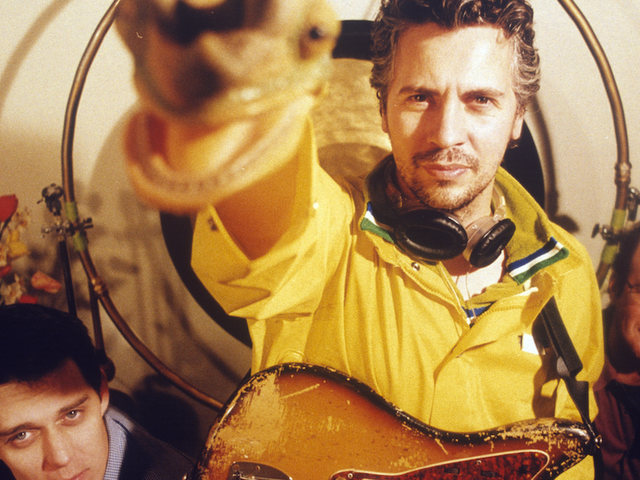10 Album Elektronik Terbaik Tahun 2017
Digital/Divide adalah kolom elektronik bulanan kami. Berikut adalah 10 album elektronik terbaik tahun 2017.

The emergence of Lisbon’s Afro-Portuguese kuduro sound denotes the vast potential of electronic music to adapt and thrive outside of the more conventional urban centers for dance such as Berlin or London. While the Principe Discos imprint didn’t have its most prolific year, it held its own in 2017 in representing the scene. A name no doubt recognized by those familiar with the groundbreaking Cargaa series, DJ Lycox at last presents a full-length, one unencumbered by expectations. Via the deep house grooves of “Domingo Abençoado” and the trancey leads of “Sky,” he gives the vibrant subgenre a rejuvenating jolt throughout Sonhos & Pesadelos. The anticipated polyrhythmic complexities of this music persist even as the implementations fluctuate in often wild ways. The balearic finale “Solteiro” peaks with a pristine balance of elements, making for a style somewhere just beyond the reach of tropical house.

Following not long after a gratifying split on Leaving Records with Carlos Niño, Matthew David McQueen makes an appearance on this avant garde Vermont-based imprint for the year’s finest ambient set. In keeping with his new age ideals, the celestially centered title track glistens like jelly around its smoldering and crackles. Even with all its inherent beauty, the piece retains an ominous or at least precarious energy, threatening to explore yet merely collapsing like a wave come ashore. Composed ahead of his daughter’s birth, that inspiration assuredly explains the anticipatory nature of its twenty four minute duration. On the flip, McQueen pays homage to M. Geddes Gengras, another artist of his experimental ilk. Raising the distortion, “Gengras” sets its gentle drone on fire, making for a lush slow motion blaze. More incidental that overtly improvisatory, the almost unrelenting wall of sound dissipates with muted grace.

Arguably one of the most brilliant bass devotees of our time, Kevin Martin has a lengthy musical resume that stretches far back from the domineering dancehall and distorted dub of The Bug. It’s those earlier experiments with industrial and metal in monosyllabic projects like God and Ice that makes this dystopian collaboration feel so right. Another veteran of heavy music, guitarist Dylan Carlson continues to helm the drone pioneers Earth, taking that band into exciting terrain somewhere between Ennio Morricone and Sunn O))). Together, the two musicians embrace a 1970s Ballardian concept and apply it aptly to modern day Los Angeles, with results meant to produce an unsettling awe. From the grandiose shoegaze of opener “City Of Fallen Angels” through to the closing titular epic, the duo engage in a balletic sonic symmetry, both playing off of and manipulating one another to yield an aesthetic that’s quintessentially American, if subversively so.

A Los Angeles native, Nicky Benedek spends no small amount of time on this album dwelling on the past. In line with his prior collaborations with Dam-Funk and Tom Noble, the synth and boogie records of the 1980s more than inform Bene’s World, a commemoration of a fertile period in music still not quite sufficiently treasured. Thorough in their devotion, the tough funk workouts “On My Way” and “Westin” abut sleeker dancefloor fare “Afterglo” and “Big Nite City.” After a warm and echoey opening, the instrumental R&B number “Sonatine” slinks along at a leisurely pace. Even at their best, retro outings rarely do more than mimic with precision. But Benedek’s aptitude for songwriting means he exceeds such limitations here. Highlight “Ocean Park” takes familiar bits and retools them into a house track flecked with the breeziness of smooth jazz.

Though this New Yorker is perhaps most widely known for his involvement with black metal hipsters Liturgy, his work as a drummer outside that group has made him one of this decade’s most respected experimentalists. Bridging acoustic and electronic as only he can, this solo effort presents him as a transcendental traveler with a mischievous streak. Fox occasionally ropes in a guest, but by and large this is his trip, one that blends out-there jazz with new age bliss. His percussive prowess manifests in fascinating ways, in the late period Radiohead groove of “OPB” and amid the shimmering chaos of “My House Of Equalizing Predecessors.” With the occasional assistance of saxophonist Maria Kim Grand and a few other instrumentalists, he exceeds the already great work he’s done with Guardian Alien and Zs on this freewheelin’ yet principled outing inspired by Milford Graves and Pharoah Sanders.

Though the buzz around Burial often sucks the oxygen out of the rest of the roster, real Hyperdub heads recognize Sara Abdel-Hamid as the label’s dark horse. Underestimated at one’s peril, Ikonika’s music pushed beyond the dubstep daze into exciting crossovers and retrofitting. With overt nods to grime as well as UK strains of R&B, her eclectic latest eases up on the 8-bit worship of 2013’s Aerotropolis full-length for something true to techno without being too beholden to it. Suffused with an electro energy, hypnagogic bass jams “Lear” and “Lossy” find wonders in the depths. On the guest vocalist front, Andrea Galaxy grants life-giving breath to the slamming percussion and future funk of “Noblest,” while spitter Jammz gives a brief tour of East London to arriving space invaders on “Sacrifice.” Beyond the dancefloor, the more abstract “Do I Watch It Like A Cricket Match” reveals mesmeric sound design befitting such a skilled textural tactician.

In a year where the pioneering UK-headquartered electronic imprint dabbled in everything from Shobaleader One’s manic jazz fusion to Kelela’s stark futurist R&B, one of their most gripping releases skews closer to the classic left-wing techno of the label’s hungry infancy. Quite removed from the avant-mischief of his debut Clarence Park, Clark’s latest defies the dancefloor by making music ostensibly designed to move it. If not for an appreciation for club music, his productions might seem downright villainous in their shapeshifting subterfuge. The piston pump of “Hoova” makes way for breezy breaks and dreamy pads, the resultant haze turning to ambient trance pause. Voice plays a significant role here, though in no way close to conventional pop. Instead, humanity is but a texture on “Aftermath,” a jarring plot point in the nail-biting drama of “Catastrophe Anthem.” Clark builds almost cinematic structures throughout the ‘Death Peak’ narrative, culminating with “Un UK,” an apparent comment on his divided nation’s Brexit woes.

The aural equivalent of Nickelodeon Gak, the music made by youngster Seamus Malliagh shines with a neon hued artificiality. While in many contexts that might seem a put down, the Iglooghost project is a special case. His brain dances with colorful visions of magical space worms and the fantastical witch-infested multiverse it travels. That imagination then erupts into wondrous, disgusting, and truly unique songs that thumb hirsute noses at the limitations of genre. Comparisons to Hudson Mohawke, Oneohtrix Point Never, and Venetian Snares by way of amalgamation prove ill-suited when held up against the jazz splatter of “Super Ink Burst,” the grimy gabber of “Peanut Choker” or the virtual reality dubstep of “Zen Champ.” Convenience doesn’t factor into what Malliagh doles out with these bright and exhibitionist works. Rapper Mr. Yote adds barely scrutable bars to the janky junglism of “Teal Yomi / Olivine,” a dizzying number that perfectly encapsulates the barely controlled mania on display here.

Easily the most challenging artist to come out of the footwork scene, Jerrilynn Patton remains one of the genre’s dedicated practitioners even as her productions push through its boundaries. To categorize Jlin’s music as separate from that homegrown African-American musical movement would be to deprive it of one of its luminaries. Her critically acclaimed work for Planet Mu further affirms label owner Mike Paradinas’ prescient promotion of footwork and juke some years back, and the release of Black Origami further advances that cause. Though Indiana seems an unlikely place for Eastern spirituality, the titular female Egyptian pharaoh of “Hatshepsut” seems oddly right at home on a Midwestern underground dancefloor, as does likeminded material including “Holy Child” and the “Calcination” interlude. Patton’s ambitious work hits all its marks and then some, hypnotizing on the title track and demolishing with the sonic weapon of “1%.”

Daniel Lopatin makes difficult art. His previous album under the 0PN moniker, 2015’s Garden Of Delete somehow managed to grow his audience despite the repellent extraterrestrial narrative of its premise and the utterly strange application of its sound design. Fans of Lopatin’s prior work may have been taken aback by the relative accessibility of Good Time, a soundtrack to the lurid indie crime drama of the same name. While star Robert Pattinson has literally appeared in a Cronenberg movie before, there’s something irresistible about having his on-screen actions mapped by a composer with experience in effectively translating body horror. However, Good Time skews closer to Tangerine Dream, often heavy with melodic synths. The opening title track employs some queasy pitch-bending, setting the tone for dread-filled moments on “Entry To White Castle” and “Romance Apocalypse.” Once “The Acid Hits,” erm, hits, the payoff feels as big as any Hollywood climax. The only conventional song, “The Pure And The Damned” features septuagenarian Iggy Pop in grave crooner mode, hinting as yet another avenue for the brilliant Lopatin to explore next.
Honorable Mentions:
Cashmere Cat: 9 [Interscope / Mad Love]
Celestial Trax: Nothing Is Real [PTP]
Dasychira: Immolated [Blueberry]
Kingdom: Tears In The Club [Fade To Mind]
Lapalux: Ruinism [Brainfeeder]
Laraaji: Bring On The Sun [All Saints]
Lunice: CCCLX [LuckyMe]
Oobe: Amarcord [Blueberry]
Jana Rush: Pariah [Objects Limited]
Vermont: II [Kompakt]
Born, raised and still living in New York City, Gary Suarez writes about music and culture for a variety of publications. Since 1999, his work has appeared in various outlets including Forbes, High Times, Rolling Stone, Vice and Vulture, among others. In 2020, he founded the independent hip-hop newsletter and podcast, Cabbages.
Bergabung dengan Klub!
Bergabunglah sekarang, mulai dari 44 $Diskon eksklusif 15% untuk guru, mahasiswa, anggota militer, profesional kesehatan & penjaga pertama - Verifikasi sekarang!











